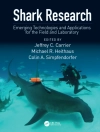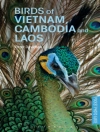This book provides background knowledge on sustainable bioeconomy development in the Global South and documents its status. It promotes pertinent understanding for the sustainable creation of new value chains within the sector especially in terms of bioenergy and biomaterials as well as the definition of priority areas and supportive framework by local, national, regional and international agencies and consortiums. This book covers the state of affairs of innovative bio-based products from agriculture, forestry, biotechnology, medicine, pharmaceuticals, food and feed, construction materials, bioenergy, paper, and pulp, industrial goods, and environmental management. It also presents narrative-based reviews of bio-based raw materials, processing processes, products, and services that showcase the status of bioeconomy development in the Global South.
This book is a reference for trainees and trainers, bioeconomy practitioners and activists, students, civil, private, and public employees and employers, academics, researchers, environmentalists, ecologists, social scientists, agricultural scientists, economists, governmental and non-governmental organization, biodiversity experts, policymakers, conservationists and industries interested in promoting sustainable bioeconomy development in the Global South.
विषयसूची
Chapter 1. Status of Biological Resources in The Global South: Baseline Assessment Strategies.- Chapter 2. Raw Materials for Sustainable Bioeconomy Development in the Global South.- Chapter 3. Bioeconomy Resources and Technologies of Global South.- Chapter 4. Medical and Pharmaceuticals from Biological Resources in the Global South.- Chapter 5. Sustainable Production of Bio-based Materials in the Global South.- Chapter 6. Bioenergy Resources in the Global South.- Chapter 7. Renewable Energy Technologies for Sustainable Bioeconomy Development in the Global South.- Chapter 8. Processes Associated with Bioeconomy in the Global South.- Chapter 9. Bio-based Value-added Products and Services from Biological Resources in the Global South.- Chapter 10. Harnessing the power of microbial allies: AMF and PGPR as biostimulants for sustainable bioeconomy development in the Global South.- Chapter 11. A data framework for monitoring bioeconomy transition: A combined PDSA methodology and DSS approach.- Chapter 12. Bioeconomy And Social Innovation To Promote Productive Inclusion.- Chapter 13. Consumer-focused Transition to a bio-based sustainable economy in Africa.- Chapter 14. Sustainable Valorization of Vinasse in the Tequila Industry of the Lerma-Chapala Region: Towards an Integrated Regional Bioeconomy.- Chapter 15. Exploring Public Perceptions of the Bioeconomy in the Global South: A Public Policy Approach.- Chapter 16. Damask Rose: A Symbol of Sustainability and Resilience in Morocco’s Bioeconomy.
लेखक के बारे में
Dr. Matthew Ogwu is an assistant professor of sustainable development and integrated ecology at Appalachian State University, USA. He obtained his Ph D in biological sciences from Seoul National University, and M.Sc. and B.Sc. from University of Benin, Nigeria. Dr Ogwu is an interdisciplinary academic with numerous awards and scholarships to his name. His research focuses on the assessment of coupled human and natural systems, and socio-ecological systems for sustainable environmental development which includes soil microbial and geographical ecology, economic plant characterization for breeding and conservation, ethnobotany and biodiversity issues and policies. Dr. Ogwu has published over 100 peer-reviewed works and has presented his results at different international conferences. He utilizes his education, skills and experience to develop environmental management and sustainable food security policies.
Dr. Sylvester Izah obtainedhis Ph.D. in applied microbiology and environmental health, M.Sc. in applied microbiology, and B.Sc. in biological sciences from Niger Delta University, Nigeria. Dr. Izah worked in an environmental consultancy firm for over six years focusing on soil, water and atmospheric assessment. He has carried out studies on vegetation cover and biodiversity, concerning species diversity and composition in the course of his early career. He is presently a lecturer at the Bayelsa Medical University, Yenagoa, Nigeria. Dr. Izah has an impressive research and publication record in the field of applied biological research including water quality, applied microbiology, biotechnology, public and environmental health, risk assessment, bioenergy, toxicology, and biodiversity studies. Dr. Izah has over 20 peer-reviewed publications including journal articles, book chapters and an edited book.
Prof. Humberto Merritt holds a Ph D in science and technology policy from the Science Policy Research Unit (SPRU) of the University of Sussex in Brighton, UK. He is a technology management professor at Mexico’s Instituto Politécnico Nacional (National Polytechnic Institute). Dr. Merritt has been a visiting researcher at Antwerp University, Belgium, Lund University, Sweden, and Portland State University, USA. He has published extensively on the economics of innovation, and has held the Mexican National Researchers award from CONACy T since 2009.
Dr. Raul Delgado Wise is currently a professor and director of the doctoral program in Development Studies at the Autonomous University of Zacatecas, President and founder of the International Network on Migration and Development, and co-director of the Critical Development Studies Network. He has published 27 books and more than 200 book chapters and refereed articles. He also serves as the UNESCO Chair on migration, development and human rights. Dr. Wise is also an adjunct professor of international development studies at St. Mary’s University, Canada, since 2005, and latin american studies program, Simon Fraser University, Canada, since 2006.
Dr. Attachai Jintrawet holds a Ph D in agronomy and soils from the University of Hawaii, USA. He has over twenty years of experience working with research and community funding agencies in Thailand for decision support systems and precision agriculture research projects. Dr. Jintrawet has thirty years experience in teaching undergraduate and graduate levels on systems approaches to agricultural systems resource management under Chiang Mai University, Thailand. He is currently a professor emeritus of Chiang Mai University, Thailand but is still an active researcher and agricultural community leader. Since 2003, he has co-hosted international trainings on agroinformatic tools to simulate crop growth and yield, soil and plant water, nutrient and carbon dynamics and their applications to real world situations.












